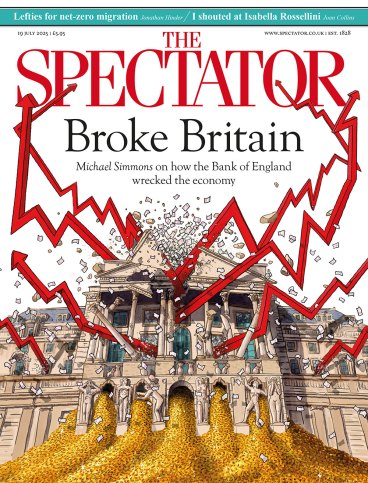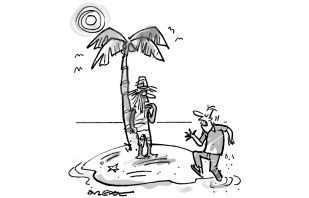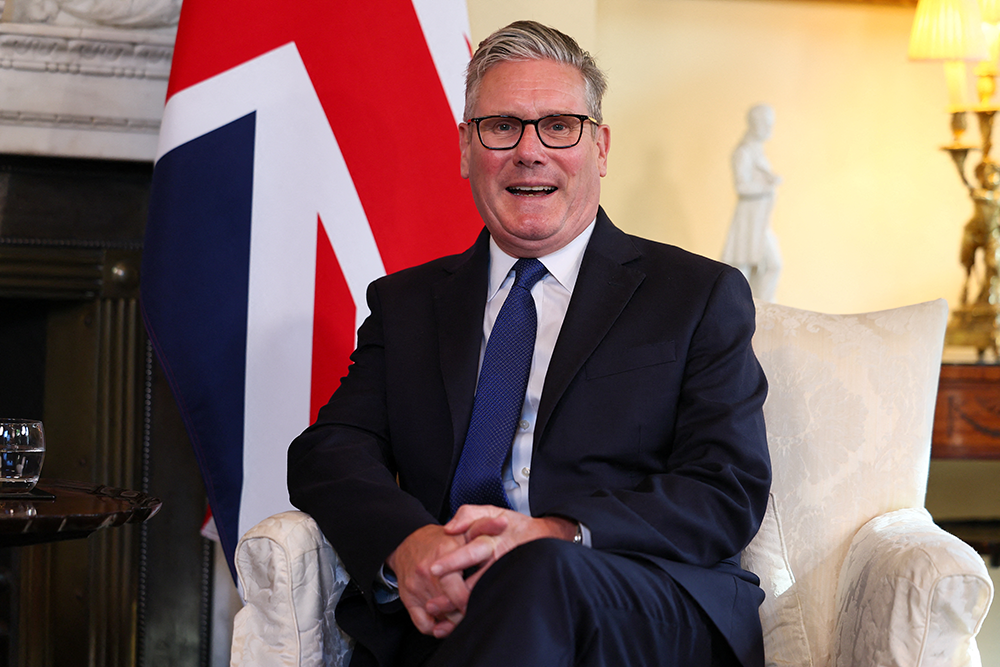
Labour ministers face a range of terrible political choices, but when the cabinet met for an away day at Chequers last Friday, the first dilemma was what to wear. ‘There was panic beforehand about what “smart-casual” meant,’ one ministerial aide says. Both Hilary Benn and John Healey turned up in dark suits and red ties. ‘To be fair to the Defence Secretary, he hadn’t seen that bit of the invite,’ a No. 10 official explains. ‘Whereas in Hilary’s case, that is what his smart-casual looks like.’ By contrast, Peter Kyle, the Science Secretary, turned up in what one observer describes as a ‘tech bro AI T-shirt’.
Finding an economic policy and an eye-catching narrative about where Keir Starmer wants to take the country has proved no easier than interpreting the dress code. A Portland Communications poll this week found that by two to one (47 per cent to 24 per cent) the public has no idea what Starmer’s vision for Britain is. But getting an answer has become more pressing following successive months in which the economy contracted and inflation rose to 3.6 per cent, redoubling the focus on who Rachel Reeves will have to tax to plug the black hole in the public finances (which, it is estimated, will stand at between £20 billion and £30 billion by the time of the autumn Budget).
The plan for the government’s approach for the months ahead was clearer when Starmer spoke at Chequers. The PM noted that the grace-and-favour mansion was given to the nation by Arthur Lee ‘because he thought that there would come a time when a prime minister would not necessarily have a country house of his own to relax in’. Speaking near the outdoor kitchen Rishi Sunak installed at the property (which, when he was prime minister, was just one of his five homes), Starmer reflected that, when he was growing up: ‘I never thought I’d be prime minister or even become an MP because those jobs weren’t for people like me.’ He talked about how ‘most children’s fate is still determined by the income of their parents, not their talents’. To reinforce the point, Starmer said the event he had most enjoyed since becoming PM was when ‘working people’ he met on the campaign trail were invited to No. 10 a couple of weeks ago. The mood at Chequers was good.
Aides and ministers say Starmer’s emphasis on the aspirational working class has both a specific policy meaning and a broader strategic significance. Specifically, this means ‘you’re going to hear a lot more about the opportunity mission’, a No. 10 official says. ‘Life chances are what really animates Keir.’
It was a similar formula which led Reeves to tweak the rules on mortgage lending to help those with smaller deposits to get on the housing ladder. She told the Yorkshire Post: ‘My mum and dad were primary school teachers. They owned their own home in their twenties… That is just not possible for many people today.’ In the same vein, Reeves announced a £500 million Better Futures Fund to tackle child poverty, following the creation of ‘Best Start’ family hubs, a rebranded version of Sure Start.
The real significance of the
Chequers meeting was a vibe shift in defining Starmerism
All of which signals that, when it comes to tax rises, higher-rate taxpayers can expect to be squeezed with a threshold freeze and raids on pensions and assets. MPs are attracted to a wealth tax, proposed by Neil Kinnock, an option conspicuously not ruled out last weekend by Transport Secretary Heidi Alexander. She talked only of protecting those on ‘modest incomes’. When Treasury minister James Murray held a drop-in session on tax for MPs on Wednesday, some pressed for a wealth tax. Darren Jones, the Chief Secretary to the Treasury, had earlier described workers as ‘anyone who gets a payslip’. A Labour strategist observes: ‘Everyone is flying kites.’
The real significance of the Chequers meeting was a vibe shift in defining Starmerism. A cabinet fan of the West Wing episode ‘Let Bartlet be Bartlet’, in which the titular US president embraces his core beliefs, says: ‘Keir was surprisingly upbeat. It was all very “let Keir be Keir”.’ Some of those present detected a ‘progressive pivot’.
It is worth recalling that previous iterations of this mantra – ‘let Miliband be Miliband’ and ‘let Sunak be Sunak’ – led to, respectively, a period of over-intellectualised leftism and a focus on incongruous personal passions such as funding chess clubs and banning smoking. One of those in government who favours pragmatism over progressivism refers to this ‘be yourself’ strategy as ‘coherent – but electoral arsenic’.

But it is not necessarily a political mistake. Luke Tryl of pollsters More in Common told a Spectator event on Tuesday evening: ‘What Labour has struggled with is that people don’t know what it’s about.’ Asked what they want from Labour at its best, voters answer ‘tackle poverty, support the working class and improve public services’. Tryl said: ‘People elect Tory and Labour governments for very different things. That rose garden speech, where Starmer said it was going to be more of the “tough choices” which people have heard about since the financial crash, got people thinking: “This isn’t why we got these guys in.” Winter fuel and the welfare cuts really jarred. In politics, you want to be congruent with what people think you’re about.’
The Chancellor’s only hope of avoiding painful choices is to stimulate growth, which is why the key message in her Mansion House speech on Tuesday was to urge regulators to stop acting as ‘a boot on the neck of businesses’. But to many firms, the employers’ national insurance rise and new workplace rights are the biggest boot of all.
The challenge for Starmer is not just to pick a vision and let it guide the substance, but to sell it in a way the public can understand and connect with. The danger is that ‘let Keir be Keir’ becomes an adenoidal incrementalist echo of Miliband’s soggy do-goodery and Sunak’s earnest spreadsheet deliverism – unlikely to inspire an electorate acquiring a taste for Faragiste flamboyance. ‘We’ve got to show we’ve got the answers or what comes next will be something very different,’ a No. 10 source admits.
When he turned up at Chequers, the normally buttoned-up Starmer chose the safe smart-casual option – blue chinos and a dark shirt. If he needs to prove he has a flamboyant side, perhaps next time he should pair the sensible trousers with a Union Jack T-shirt.








Comments